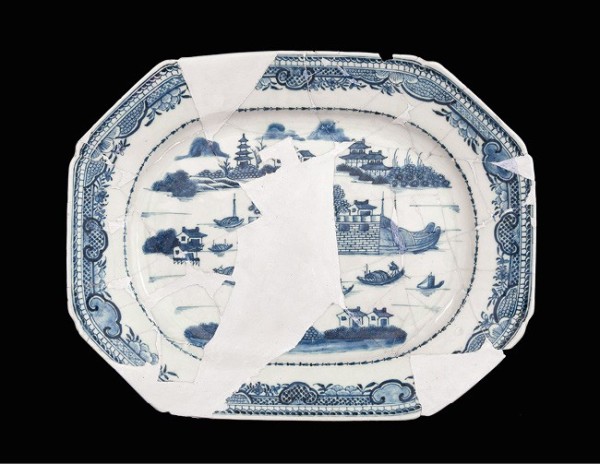
Dish, Jingdezhen, China, 1770–1790. Hard-paste porcelain. L. 14 1/2“ . (Courtesy, James Madison’s Montpelier; photo, Robert Hunter.) The dish was excavated at James Madison’s Montpelier.
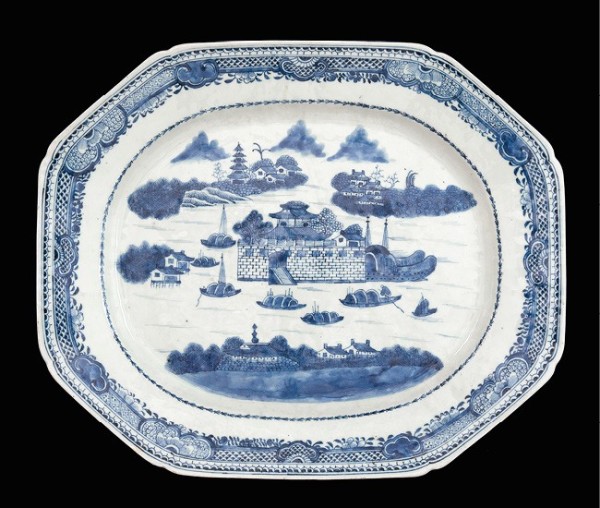
Dish, Jingdezhen, China, 1770–1790. Hard-paste porcelain. L. 17 3/4“ . (Courtesy, Reeves Museum of Ceramics, Washington and Lee University, Gift of Bruce C. Perkins; photo, Robert Hunter.)
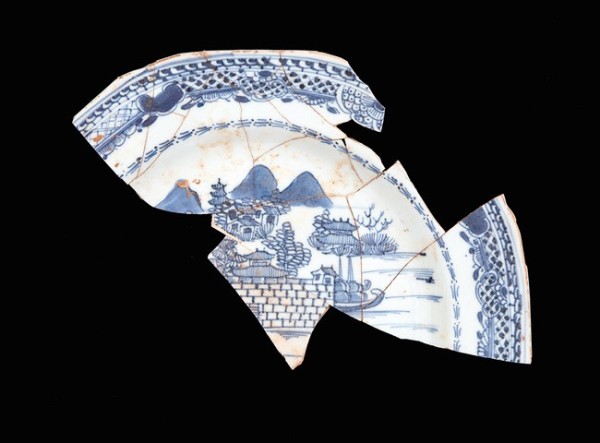
Plate, Jingdezhen, China, 1770–1790. Hard-paste porcelain. D. 10". (Courtesy, James Madison’s Montpelier; photo, Robert Hunter.)
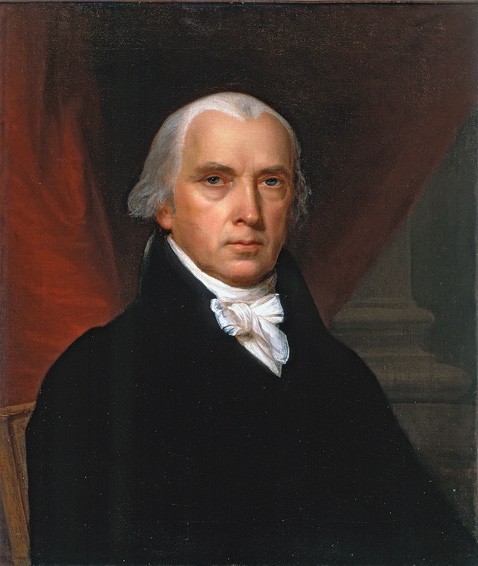
John Vanderlyn (1775–1852), James Madison, 1816. Oil on canvas. 26 x 23 3/16“. (White House Collection, White House Historical Association.)
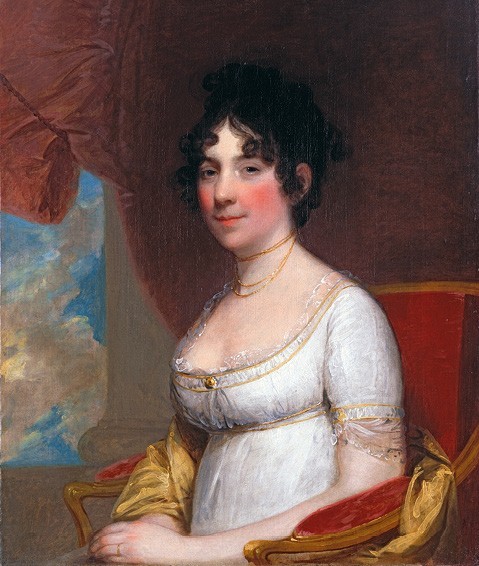
Gilbert Stuart (1755–1828), Dolley Madison, 1804. Oil on canvas. 29 3/16x 24 1/8". (White House Collection, White House Historical Association.)
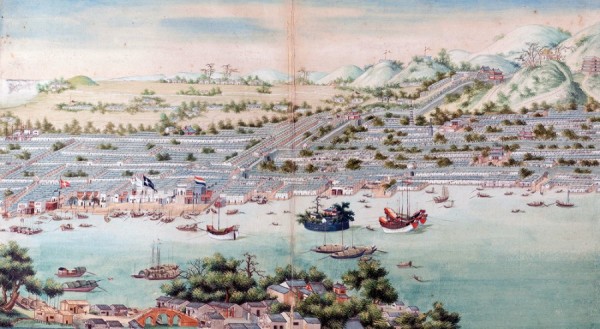
Unidentified artist, View of Guangzhou, ca. 1770. Gouache on paper. 21 1/2 x 12 1/2“. (Courtesy, Martyn Gregory Gallery, London.)

Drone photograph of the main house and grounds, 2021. The archaeological deposits are: (1) the main trash deposit containing plates; (2) the trash deposit in the back lawn from which the larger section of the dish illustrated in fig. 1 was first excavated; and (3) the slave quarter where the remaining pieces of the dish were found. (Photo, Montpelier Foundation.)
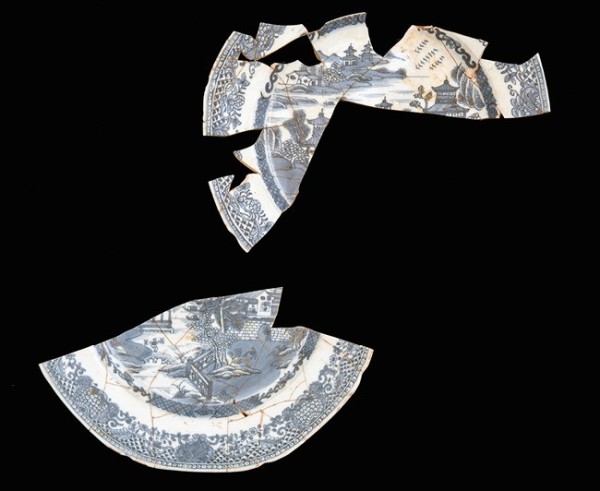
Plates, Jingdezhen, China, 1780–1800. Hard-paste porcelain. D. 10". (Courtesy, James Madison’s Montpelier; photo, Robert Hunter.)
